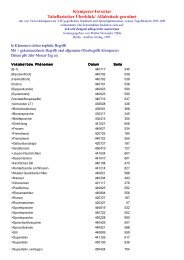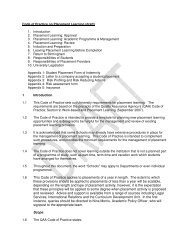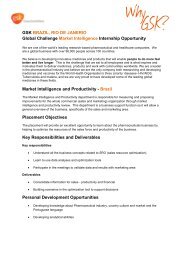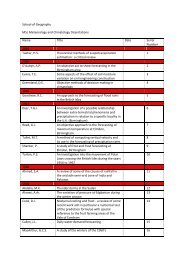HMB_IPD_Study_protocol - University of Birmingham
HMB_IPD_Study_protocol - University of Birmingham
HMB_IPD_Study_protocol - University of Birmingham
Create successful ePaper yourself
Turn your PDF publications into a flip-book with our unique Google optimized e-Paper software.
3.4 - TYPES OF OUTCOME MEASURES<br />
Primary outcomes:<br />
Version 1.1<br />
Heavy Menstrual Bleeding (<strong>HMB</strong>) <strong>IPD</strong> Meta-analysis<br />
The primary outcome <strong>of</strong> interest is subjective reduction in menstrual blood loss. Any<br />
studies that do not include a measurement <strong>of</strong> MBL will be excluded. MBL can be<br />
assessed in a number <strong>of</strong> ways including a Visual Analogue Scale (VAS) or by<br />
pictorial blood loss assessment charts (PBAC).<br />
Secondary outcomes:<br />
Other outcomes will be collected for meta-analysis to investigate the effect <strong>of</strong> the<br />
interventions on other aspects <strong>of</strong> <strong>HMB</strong> on women, adverse effects and resource<br />
implications. These will include:<br />
- Patient satisfaction<br />
- Safety <strong>of</strong> procedure (morbidity, adverse effects, operative complications)<br />
- Length <strong>of</strong> operating time<br />
- Length <strong>of</strong> hospital stay<br />
- Fluid deficit<br />
- Pain<br />
- Anxiety, depression, sexual functioning<br />
- Long-term complications<br />
- QoL<br />
- Health-related Quality <strong>of</strong> Life<br />
- Pre-menstrual symptoms<br />
- Repeated surgery for <strong>HMB</strong><br />
12







![Benyamin Asadipour-Farsani [EngD Conference abstract]](https://img.yumpu.com/51622940/1/184x260/benyamin-asadipour-farsani-engd-conference-abstract.jpg?quality=85)









